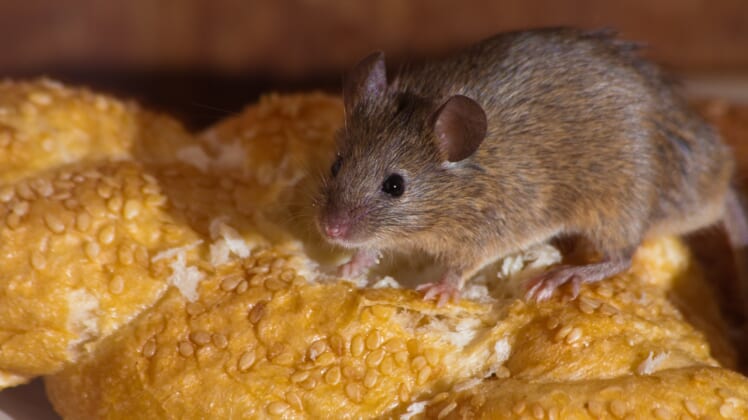The Deadly Disease That Could Be Lurking in Your Home

You might not be openly ushering diseased mice into your home. But you could still be at risk for hantavirus without knowing it.
Right now, as a mother battles the dangerous infection in New Mexico (reported by Hawaii News Now), you might be wondering what it’s all about.
In short, hantavirus is an illness transmitted by infected mice. According to the Centers for Disease Control and Prevention, over 700 cases have been reported in the United States. The US began monitoring the disease in 1993 due to an outbreak that warranted closer surveillance.
In many instances, the infection will progress to Hantavirus Pulmonary Syndrome (HPS), which can be fatal. Of the HPS cases reported to the CDC, 36 percent have ended in death.
However, the CDC also states that these cases occur sporadically as people come into contact with mice or their droppings.
The Basics
Once a person contracts the infection, it can quickly lead to HPS. The CDC gives the following signs and stages for the illness:
The CDC believes the time between contact and illness is between 1-8 weeks. At the beginning, symptoms may seem flu-like. A few signs that may occur are
- Fever
- Nausea/vomiting
- Muscle aches
- Fatigue
- Chills
- Dizziness
At this point, the symptoms for HPS may not be obvious.
Between 4-10 days later, however, a person may experience dangerous pulmonary symptoms:
- Coughing
- Shortness of breath
- Fluid in lungs
At this point, the virus has made a turn for the worse, and the infected person should get medical help immediately.
How It’s Contracted
It’s important to remember that the hantavirus is not a common disease. The relatively small number of documented cases proves that.
Still, you should stay aware of the signs and ways to prevent it in order to keep this illness at bay.
Basically, the hantavirus can occur wherever infected rodents are inhabiting. Mice often like wooded or overgrown areas, buildings or other unused areas and fields.
The mice that are most likely to cause an infection in the US are deer mice, says the CDC. These mostly inhabit the western and central United States.
However, cotton rats, rice rats and the white-footed mouse can all carry the hantavirus too. Cotton and rice rats reside in the southeastern US, and the white-footed mouse likes the northeastern region.
Not only are the possible wide regions a problem, but the way the hantavirus is spread proves problematic too. Many people may assume that avoiding direct contact will keep them safe.
However, the CDC attests that hantavirus is often spread through airborne particles. Sweeping or stirring up dust in areas where a rat has left droppings, urine or saliva could trigger infection.
How Do You Prevent Hantavirus?
If the hantavirus is so easily contracted, how can you prevent it? The most effective measure is to keep mice away from your home.
The CDC recommends eliminating anything that would attract mice. A few places to start:
- Clean up food messes right away.
- Keep dishes washed and put away after use.
- Keep food in air-tight containers with lids.
- Contain animal food in bins with tight lids.
- Keep outside woodpiles and compost bins at least 100 feet from the house.
If you notice traces of mice around your house or live in an area where mice are common, follow these steps:
- Wear gloves.
- Spray contaminated areas with a disinfectant cleaner or mixture of bleach and water.
- Be sure to wet the area thoroughly.
- Let it soak for at least 5 minutes.
- Wipe up with a paper towel and throw it away.
- Clean the area again with disinfectant.
- Disinfect your gloves before removing.
- Wash your hands thoroughly with soap and water.
Be sure to research and follow safety procedures for cleaning out unused buildings or overgrown areas as well.
While the hantavirus isn’t common in the United States, it can take those at risk for the illness by surprise. You should stay aware of indications that mice might be problematic in your area, especially if you see traces around your home. However, taking precautions to keep your home tidy and sealed should stave off this unwanted illness.
